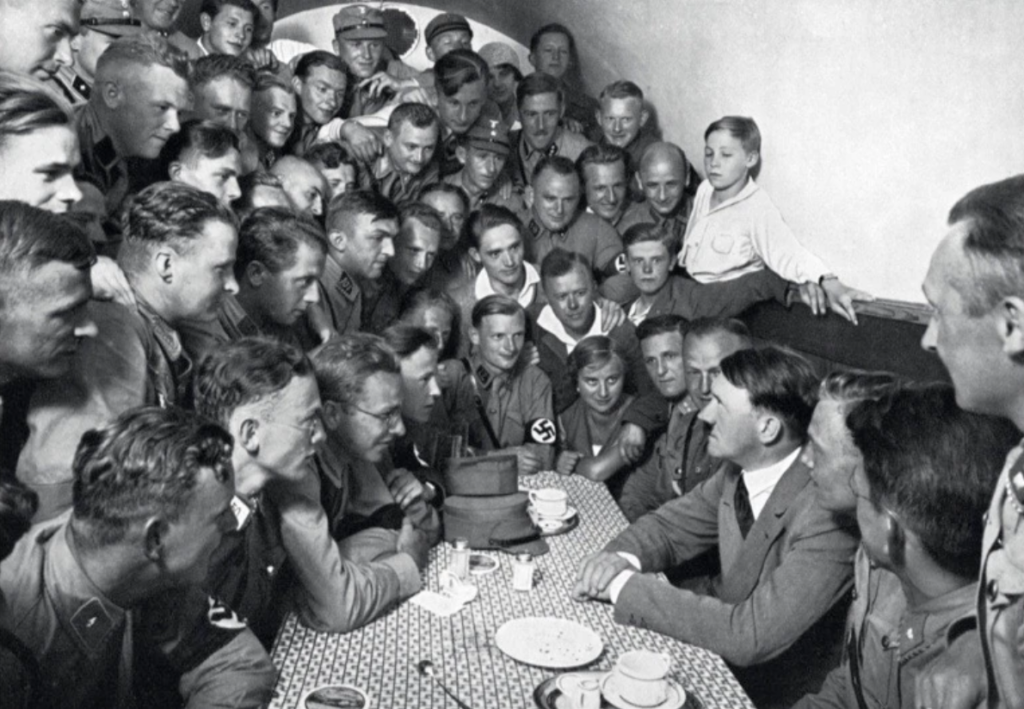
Title and Author
Title: Hitler’s People: The Faces of the Third Reich
Author: Richard J. Evans
Release Date: August 13, 2024
Category: History
Hitler’s People: The Faces of the Third Reich, released by Waldemar Heckel on August 13, 2024, explores Nazi Germany through ordinary Germans’ perspectives. Through meticulous character portrayal and analysis of moral dilemmas, Heckel shows how individuals made choices under the dual pressures of moral responsibility and social penetration in a totalitarian regime. This review will evaluate the book’s unique value and contributions based on these key themes. For a detailed analysis, you can read the full review here.
Character Portrayal and Moral Dilemmas
Heckel illustrates the complex moral dilemmas faced by ordinary Germans under the Nazi regime through meticulous depictions of their lives. The book features characters from various backgrounds, including workers, farmers, intellectuals, military officers, and officials within the Nazi Party. These characters are not simply “good” or “bad” but reflect the interweaving of good and evil in human nature under extreme conditions.
In the book, many ordinary people face moral choices between conforming to the Nazi regime or resisting its atrocities. Heckel shows their moral confusion in the face of Nazi ideology through their internal struggles. This moral dilemma reflects individuals’ helplessness under a totalitarian system. It also reveals how people respond to moral challenges within themselves when faced with immense social pressure.
Totalitarianism and Social Penetration
Heckel profoundly describes how Nazi totalitarianism infiltrated every corner of German society through propaganda, education, and social control. Through the stories of the characters in the book, readers can see that the Nazi regime did not rely solely on terror and violence to maintain control; it also gradually changed the thoughts and behaviors of ordinary people through social penetration.
The book’s depiction of social penetration is highly specific. It details how the Nazi regime used trade unions, schools, and media to instill its ideology in ordinary Germans. These details illustrate how the totalitarian system controlled state machinery and deeply influenced daily life, making conformity a widespread societal behavior.

Moral Responsibility and Historical Narrative
While portraying these ordinary people, Heckel raises a crucial question: How should individuals bear moral responsibility under totalitarianism? The characters make different choices—some conform, some resist, and others seek balance. Through these stories, Heckel prompts readers to consider how personal responsibility manifests in extreme political environments when faced with moral choices.
Heckel’s historical narrative goes beyond merely recording events, delving deeper into the human and ethical issues behind them. Through the fates of these characters, Heckel shows how moral responsibility becomes an inescapable test for everyone under totalitarian rule. This emphasis on moral responsibility makes the book not only a historical work but also a profound reflection on ethics and human nature.
Summary and Evaluation
Hitler’s People: The Faces of the Third Reich is a masterpiece exploring Nazi Germany’s history through ordinary people’s eyes. Waldemar Heckel, with meticulous character portrayal, reveals the social structure under totalitarian rule. He deeply examines the moral dilemmas and responsibilities faced by these individuals. The book’s depiction of social penetration helps readers understand how the Nazi regime influenced and controlled ordinary Germans’ lives and thoughts.
The book has achieved a high level in both academic value and exploration of human nature. Heckel adeptly links historical events to personal fates, provoking ethical and moral contemplation.”Hitler’s People” transcends history, becoming a timeless reflection on humanity’s moral struggles.
Rating: 4.5/5
Related Recommendations
If you are interested in the themes of this book, the following books are recommended:
- “Ordinary Men” by Christopher R. Browning: Explores the process by which ordinary German police became perpetrators under the Nazi system.
- “The Origins of Totalitarianism” by Hannah Arendt: A profound analysis of the origins and mechanisms of totalitarianism.
- “They Thought They Were Free” by Milton Mayer: Reveals the reactions and memories of ordinary Germans during the Nazi period through post-war interviews.




